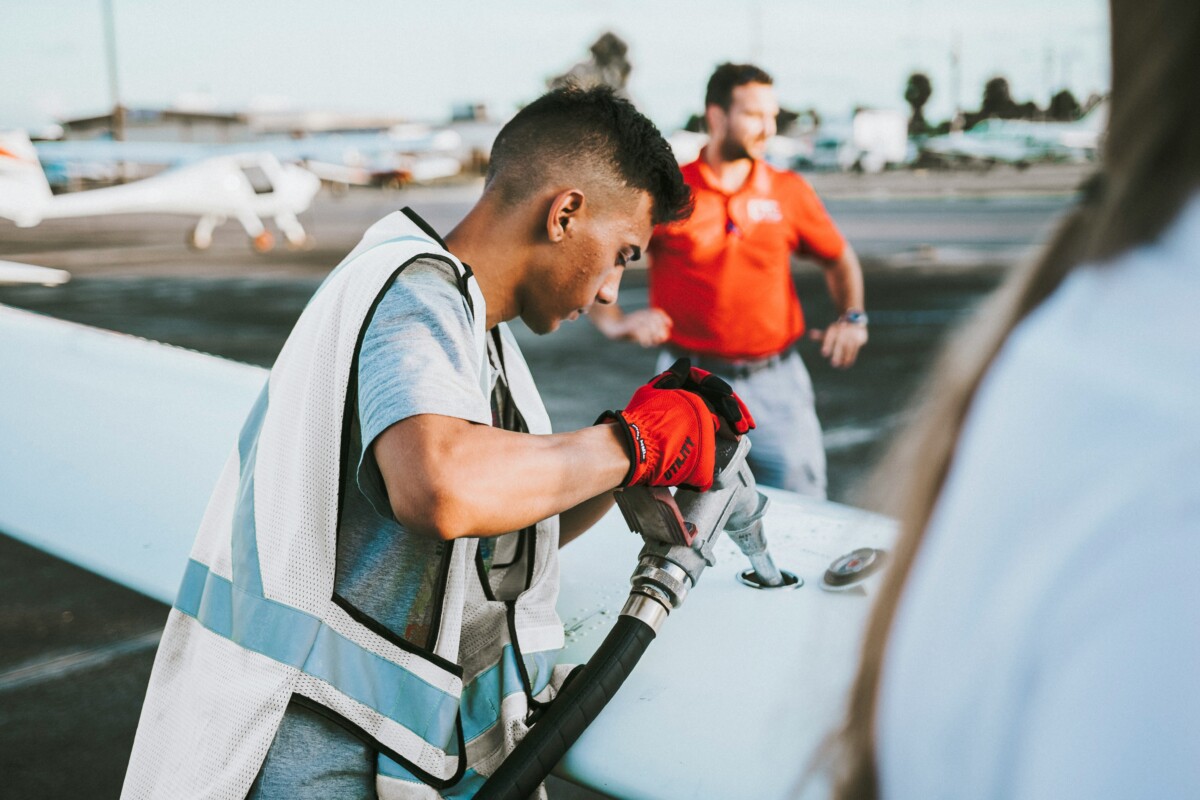Fuel for Thought: Why Policy Must Power the Next Phase of Sustainable Aviation
Listen to the full podcast episode on YouTube, Spotify, and Apple Podcasts.
✈️ SAF: Big Potential, Bigger Obstacles
At the heart of Sophia’s message is a paradox: the demand for SAF is growing (helped by new UK and EU mandates), but supply—and crucially, domestic production capacity—lags far behind. Without targeted incentives and better policy alignment, she warns, we risk missing the industrial and environmental opportunity of the decade.
“We’ve made some really good headway with creating demand… But there’s quite a few hurdles that we need to overcome in that space to really bring quite large investments at scale to the UK and Europe.”
One of LanzaJet’s solutions? Alcohol-to-jet (AtJ) technology, converting waste-based ethanol into jet fuel—offering a scalable, lower-carbon alternative that’s already been demonstrated in the US and is now being prepared for rollout in the UK (with a flagship facility in Teesside).

🔑 Sophia’s 3 Keys to Unlocking SAF Growth
1. Mandates with More Muscle
-
The UK has introduced a SAF mandate: 2% of jet fuel must be sustainable by 2025, rising to ~20% by 2040.
-
Sounds solid, but Sophia argues it’s not ambitious enough:
“I’d give it somewhere between a seven and eight out of ten.”
Compared to the EU’s more aggressive trajectory, the UK risks being seen as a laggard—particularly as aviation’s share of emissions is set to soar to 27% by 2040, even if other sectors decarbonise.
2. Incentives that De-Risk First Movers
Sophia points out the financial risk of investing in first-of-a-kind SAF facilities is still too high for many players.
- SAF plants aren’t cheap and traditional investors aren’t keen on the unknown.
- She calls for:
- Policy initiatives to support SAF commercialisation, such as ETS Allowances
- Use of the National Wealth Fund to back domestic SAF production
- Continued grant funding targeted at scalable technologies
- Greater simplicity and clarity in policy and permitting
“You’ve got great technology, great feedstock, growing demand—but finance sits behind all of it.”
3. A Clear, Coherent Policy Landscape
Current regulation is, in a word, chaotic.
-
SAF definitions and frameworks vary across the EU
-
Permitting processes are slow, contradictory, and difficult to navigate
“None of it is intentionally complex—but it is, by default, incredibly complicated.”
Sophia calls for simplification, greater alignment across UK and EU policy, and a renewed industrial strategy that puts sustainability front and centre.
🚨 Why the Clock’s Ticking
Sophia offers a stark but empowering message: SAF is coming, but if the UK and Europe don’t move faster, they’ll lose out to other global players—especially the US, where IRA tax credits and aggressive funding are helping fuel SAF’s rise.
“If we want to attract all these net zero industries that will provide jobs and growth, we have to act now.”

💡 Sophia’s Magic Wand Moment
If given the power to change one thing about the commercial world?
“I’d love to see us just go all-in on SAF.”
That means:
-
Ambitious, long-term mandates
-
Financial tools to de-risk early investments
-
A joined-up industrial vision that frames SAF not as a niche innovation, but as central to the UK and Europe’s net zero future.
Final Thoughts 🧭
Sophia’s insight cuts through political noise and technical jargon with clarity and urgency. Her call to action? Invest. Simplify. Lead.
Because this isn’t just about carbon. It’s about jobs, resilience, global competitiveness—and building a future-ready economy.
“Without sustainability, you have no business model.”
Well said.
Sponsored by...
truMRK: Communications You Can Trust
👉 Learn how truMRK helps organisations strengthen the credibility of their communications.
Want to be a guest on our show?
Contact Us.
The Responsible Edge Podcast
Queensgate House
48 Queen Street
Exeter
Devon
EX4 3SR
Recognition.
Join 2,500+ professionals.
Exploring how to build trust, lead responsibly, and grow with integrity. Get the latest episodes and exclusive insights direct to your inbox.
© 2025. The Responsible Edge Podcast. All rights reserved.
The Responsible Edge Podcast® is a registered trademark.
Sponsored by truMRK
© 2025. The Responsible Edge Podcast







